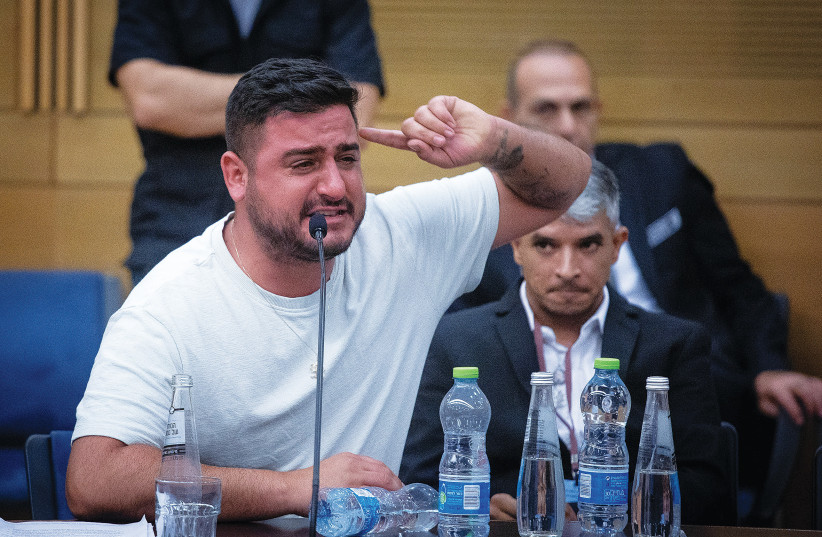Even five years after Operation Protective Edge in 2014 conflict against Palestinian terrorists in Gaza, both IDF veterans and their parents suffered deep repercussions of post-traumatic stress disorder (PTSD), according to a new Hebrew University of Jerusalem (HU) study.
Notably, veterans directly involved in the conflict showed almost twice the level of PTSD symptoms compared to indirectly active veterans, a difference persisting even in 2019.
HU researchers Shahaf Leshem, Eldad Keha, and Prof. Eyal Kalanthroff found that parents of active veterans showed higher secondary traumatic stress regardless of their awareness of their children’s whereabouts during the war. Mothers experienced greater secondary traumatic stress (STS) than fathers, but a notable link emerged between war veterans' PTSD and fathers’ secondary traumatic stress, indicating a poignant emotional connection and shared experience. This reflects a profound emotional bond and shared ordeal.
The team published their research in the European Journal of Psychotraumatology under the title “Post-traumatic stress in war veterans and secondary traumatic stress among parents of war veterans five years after the 2014 Israel-Gaza military conflict.”
STS has traditionally been explored in therapists, spouses, and children of traumatized individuals, but the Jerusalem study is among the first to investigate the correlation between children’s PTSD symptoms and their parents’ mental health outcomes. In particular, the study examined the long-term STS symptoms experienced by parents of war veterans – an area that has remained largely unexplored until now.

Distinction between soldiers
The distinction between IDF soldiers who were directly active in the action and those who were on combat duty but did not actively participate in the conflict allowed for a natural experiment condition that shed light on the psychological impact of direct involvement in the war.
As a rule, during times of “limited conflict” in which only a relatively small portion of the army is participating, the IDF ensures that some combat units sit out the combat and remain on standby, the authors wrote. Essentially, apart from specialized units, the combat units that participate in the war and the ones who are on standby are largely equivalent. In addition, combat units that do not actively participate in the war are put on a high-alert standby, prepared to join the fighting at a moment’s notice, and support the war effort in various ways.
Because the study found that veterans who were directly involved in the conflict showed almost twice the level of PTSD symptoms compared to those who were indirectly active, it suggests that the traumatic experiences of war continue to have a substantial impact on veterans’ mental health even five years after the conflict.
Parents of veterans who actively participated in the war showed higher levels of secondary traumatic stress compared to parents of veterans who were not directly involved. Mothers exhibited higher secondary traumatic stress than fathers overall, but there was a correlation between war veterans’ post-traumatic stress and fathers’ secondary traumatic stress symptoms. This indicates a strong emotional connection and shared experience between fathers and their veteran children.
The study provides critical insights into the long-term mental health outcomes of war veterans and their parents, shedding light on the often-overlooked effects of traumatic events. These findings underscore the urgent need for comprehensive support systems for both veterans and their families, emphasizing the interconnectedness of their psychological well-being, the researchers suggested.
